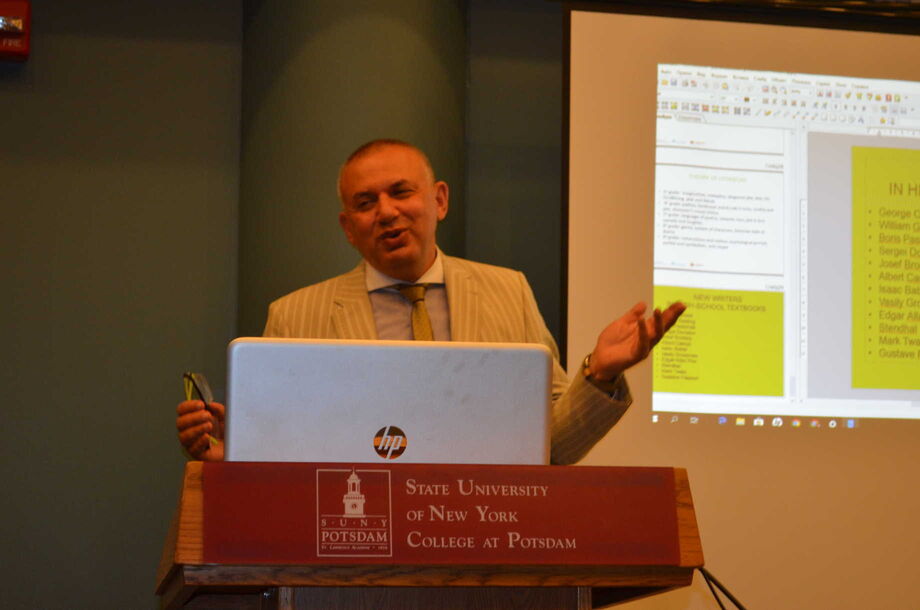In 1988, SUNY Potsdam was awarded an NEH challenge grant to create a Faculty Humanities Seminar. The grant, which helped Potsdam raise an additional $630,000 in non-federal funds, endowed a program that has provided professional development opportunities for faculty, innovative courses for students, and humanities lectures for the public for more than twenty years.
Read More
Through the program, the Faculty Humanities Seminar hosts a summer seminar for local college educators from SUNY Potsdam, Clarkson University, Saint Lawrence University, and SUNY Canton. With a visiting scholar who leads the seminar, professors in fields ranging from art history to biology explore an interdisciplinary humanities field over the course of a summer. Past topics have included inequality in the United States, endangered species, and art and working-class cultures. Participants are offered a stipend and research support for books and conference travel over the year following the seminar.
The program offers local faculty the opportunity to investigate new subjects as well as the chance to build connections outside of their academic departments and schools. The opportunities for professional development enrich these scholars’ classes and enable collaborations among faculty at the different schools. For Caroline Downing, a professor of art at SUNY Potsdam, a recent seminar on the social history of American art gave her a better grounding in the work of female artists and artists of color that she has been able to incorporate into her courses. And participating in the program helped Linda Auker, a professor of biology at St. Lawrence University, establish a collaborative relationship with a professor at Clarkson University. According to Auker, the program helped her “realize that these topics cross boundaries between humanities and the sciences. It’s important for us to talk to one another.”
As part of the program, SUNY Potsdam has hosted many visiting scholars during either the spring or fall semester. Scholars have taught courses for undergraduate students, engaged in faculty workshops, and offered public lectures for local audiences. And throughout periods when funding for humanities research and coursework has become lean, the program has consistently provided a valuable avenue for community outreach and faculty and curricular enrichment.
